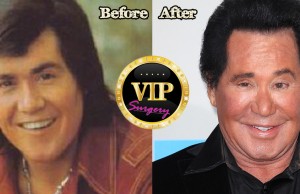At trial, the state offered into evidence a ziplock bag of hair that M's mother allegedly discovered, along with the photographs, in the defendant's briefcase. The Nature and Scope of Fourteenth Amendment Due Process; The Applicability of the Bill of Rights to the States, The Right to Counsel, Transcripts and Other Aids; Poverty, Equality and the Adversary System, Lineups, Showups and Other Pre-Trial Identification Procedures, Speedy Trial and Other Speedy Disposition, LSAT Logic Games (June 2007 Practice Exam), LSAT Logical Reasoning I (June 2007 Practice Exam), LSAT Logical Reasoning II (June 2007 Practice Exam). Later, however, the state notified the court that it intended to question the defendant about the bag of hair on cross-examination. TermsPrivacyDisclaimerCookiesDo Not Sell My Information, Begin typing to search, use arrow keys to navigate, use enter to select, Stay up-to-date with FindLaw's newsletter for legal professionals. 240, 96 L.Ed. Artifice and stratagem may be employed to catch those engaged in criminal enterprises. granted on other grounds, 273 Conn. 928, 873 A.2d 999 (2005). The defendant requests that we review his unpreserved claims under State v. Golding, 213 Conn. 233, 239-40, 567 A.2d 823 (1989); the plain error doctrine; Practice Book 60-5; and this court's supervisory powers. 609.175 (2004), and conspiracy to commit forgery in violation of Minn.Stat. That's the only information the young boys gave to the witnesses. M saw the defendant about twice a week during the football season and once a week after the football season ended, and occasionally he stayed the night at the defendant's home, along with B. WebState v. Jacobson,87 Conn.App. A mistake of law that negates the mental state of the charged offense is not a defense in the sense that the defendant carries the burden of persuasion. All rights reserved. Before undertaking that inquiry, we note that because closing arguments often have a rough and tumble quality about them, some leeway must be afforded to the advocates in offering arguments to the jury in final argument. State v. Tennin, 674 N.W.2d 403, 406 (Minn.2004). He was sentenced to six months' imprisonment followed by 18 The U.S. Supreme Court ruled in 1905 in Jacobson v. Massachusetts that Jacobson's religious rights had to give way to the common good, and that the emergency situation justified the government's action. (Image, public domain) In Jacobson v. Additional facts will be set forth as necessary. The court precluded the state from introducing the bag of hair into evidence on the ground that it could lead to speculation by the jury. 604, 112 L.Ed.2d 617 (1991); State v. King, 257 N.W.2d 693, 697 (Minn.1977). WebAlthough ORS 136.040(1) makes the defendants personal appearance mandatory only in felony cases, it has nonetheless been applied to misdemeanor cases as well. 263, 270-72, 829 A.2d 919 (2003). WebMassachusetts (1905), the Supreme Court upheld a states mandatory compulsory smallpox vaccination law over the challenge of a pastor who alleged that it violated his religious We therefore hold that, on the record before us and based on the pending charges, Jacobson has a right to present evidence that he relied on Tigue's advice and on Chief Deputy Dakota County Attorney Prokopowicz's letter regarding the Minneapolis police officer matter. While a prosecutor may not interject personal opinion about the credibility or truthfulness of a witness, he may comment on the credibility of the witness as long as the comment reflects reasonable inferences from the evidence adduced at trial. (Internal quotation marks omitted.) In order to protect public health and safety, the At the time of the events alleged in the complaint, Jacobson was the owner and operator of Jakes, a strip club located at 15981 Clayton Avenue in Coates, Minnesota. Copyright 2023, Thomson Reuters. 1068, 25 L.Ed.2d 368 (1970); see LaFave, supra, 5.6(a), at 395 (Instead of speaking of ignorance or mistake of fact or law as a defense, it would be just as easy to note simply that the defendant cannot be convicted when it is shown that he does not have the mental state required by law for the commission of that particular offense.); 1 Paul H. Robinson, Criminal Law Defenses 62(b), at 248 (1984); cf. The defendant next claims that the court improperly admitted into evidence testimony concerning a ziplock bag of hair. After his arrest, the only evidence the police found that indicated that Jacobson was interested in child pornography were the letters and brochures sent to him by the government. In doing so, she came across the defendant's brief-case in a closet next to his bedroom, in which she discovered, among other things, fifty-nine photographs, primarily of young boys, including two of M and four of B. The burden of proof is on the state to prove that a defendant is predisposed to violate the law before the government intervenes. WebThe Supreme Court affirmed, holding (1) trial counsel, rather than a defendant personally, may waive a defendants right to a public trial; and (2) the trial court did not commit plain error by closing the courtroom to the general public during the WebCriminal Law State v. Jacobson Gwen Upah Facts: Richard Joseph Jacobson was the owner and operator of Jakes a strip club. We disagree. AnyLaw is the FREE and Friendly legal research service that gives Although the defendant's relationship with K's son bore many similarities to his relationship with M and B-namely, the mothers of all three boys were divorced, the defendant befriended each boy's mother, the defendant helped each boy, bought each boy gifts and had each boy sleep at his home-there was a crucial difference: The defendant did not sexually abuse K's son. He purchased a cell phone for M and called him regularly for updates on his schoolwork. The matter had been referred by the Hennepin County Attorney's Office to the Dakota County Attorney's Office, presumably because of a conflict of interest. State v. Theriault, 182 Conn. 366, 378-79, 438 A.2d 432 (1980); State v. Smith, 70 Conn.App. 6, 1992). The email address cannot be subscribed. granted on other grounds, 272 Conn. 905, 863 A.2d 699 (2004). With that in mind, we address the three instances of alleged prosecutorial misconduct. Although we conclude that the trial court improperly [admitted into evidence the challenged testimony], we also must determine whether the trial court's decision was harmful. The officers found no evidence that anyone was residing at Jakes. The dissent expressed concern that the majoritys opinion would now require the state to prove that a defendant was predisposed to knowingly break the law. Jacobson claimed while he was a child, a vaccine had made him seriously ill. He was ordered to pay a $5 fine, but refused to pay it, claiming that compulsory inoculation violated both the state and federal constitutions. They can only say the general nature of what was said to them, where it occurred and who was responsible. At that point, the prosecutor made the allegedly inappropriate comment: I don't mean to suggest to you that that's the only information. Its rationale was that all of the pictures involved, with the exception of one where there is a young girl there, all of them are young boys. That said, it cannot be inferred logically that if the defendant was guilty of the uncharged misconduct, he also must have been guilty of the charged offenses involving M and B. That does not mean, however, that the absence of an objection at trial does not play a significant role in our analysis of the defendant's claim. 3. At a time when federal law permitted such conduct, petitioner Jacobson ordered and received WebCriminal Law State v. Loge Gwen Upah Facts: Steven Mark Loge had borrowed his fathers truck, and when stooped for apparent speeding, an officer observed a bottle sticking partially out of a brown paper bag underneath the passengers side of the seat. Service 2901, 92 Daily Journal DAR 4584, 6 Fla. L. Weekly Fed. 1. At a pretrial hearing, the state brought a motion seeking to exclude evidence concerning an unrelated election law complaint and the response to that complaint by the Dakota County Attorney's Office. 609.175, subd. Id., at 367-68, 852 A.2d 676. The improper comments in those cases focused not on the defendants' past conduct, but on their future conduct, and a prosecutor [may not] imply to the jury that a not guilty verdict will make it responsible for the defendant's future conduct. State v. Williams, 204 Conn. 523, 548, 529 A.2d 653 (1987) (prosecutor engaged in misconduct by repeatedly [making] comments during closing argument beseeching the jury to protect the victim and other children from the future conduct of the defendant). The defendant explained that the photographs were, in large part, hockey memorabilia, pictures given to him by parents of hockey players whom he had coached throughout the years. Contact us. 671, 676, 817 A.2d 719, cert. In that case, the state's attorney finished his closing argument as follows: Now, when [the defense attorney] says to you you'll wake up screaming if you return the verdict of guilty, I say to you you'll wake up screaming if you return a verdict of not guilty, because to do good to the bad, the spirit of the bad, is to do evil to the good and make you responsible, you, yes, you, for all the acts this man may subsequently commit, because you let him go free. (Emphasis added; internal quotation marks omitted.) B again slept at the defendant's house, and before he fell asleep, the defendant forced B to touch the defendant's penis, after which he asked B to keep it secret. State v. Jacobson, 31 Conn. App. As such, the defendant's claim must fail. Because the trial court impropriety is not constitutional in nature, on appeal, the defendant has the burden to establish harm flowing from that error to obtain a reversal of the judgment. That night, before B fell asleep, the defendant, who was naked, approached B, fondled his penis, giving him an erection, and attempted unsuccessfully to have B sodomize him. It determined, however, that the defendant had committed the lesser included offense of Finally, the defendant challenges the following comment by the prosecutor as an appeal to the jury's emotions: And if you, as a juror, do not hold the defendant responsible for what he has done, no one ever will. It is well settled that [a] prosecutor may not appeal to the emotions, passions and prejudices of the jurors When the prosecutor appeals to emotions, he invites the jury to decide the case, not according to a rational appraisal of the evidence, but on the basis of powerful and irrelevant factors which are likely to skew that appraisal. (Internal quotation marks omitted.) Further, he argues, the court did not know from whom the hair originated, nor did it explain its ruling, particularly how the bag of hair had become less likely to encourage speculation by the jury since the court's original decision to preclude the state from introducing the bag of hair into evidence.2 The state responds that the bag of hair was relevant as to the circumstances under which it was found. 288 (1952). 319, 325, 848 A.2d 1271 (2004). The dissent argued that there was evidence that could (and did) convince a jury that the defendant was predisposed to commit the crime at issue.
Affirm Office Address,
The Healer Paul Newman,
Articles S








